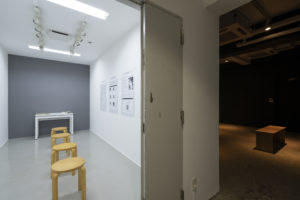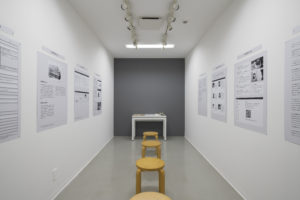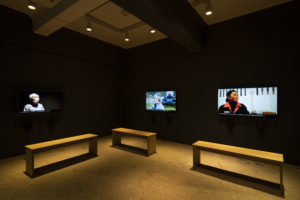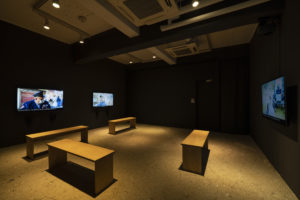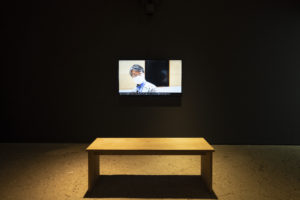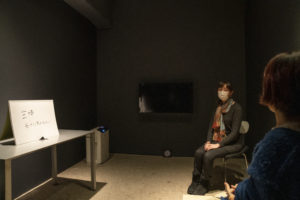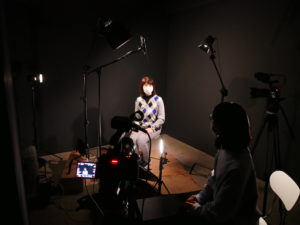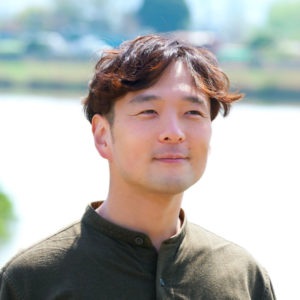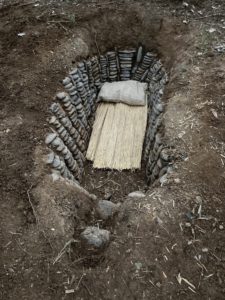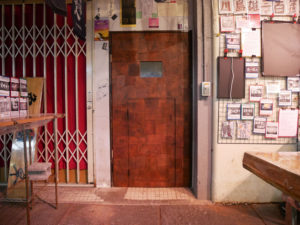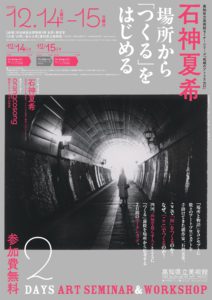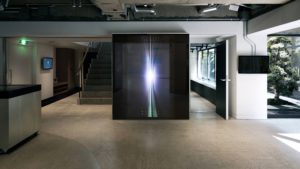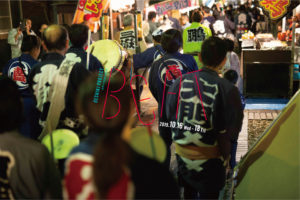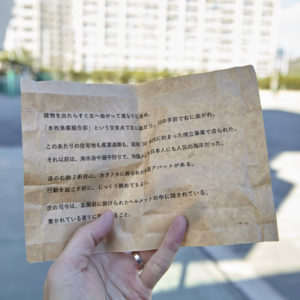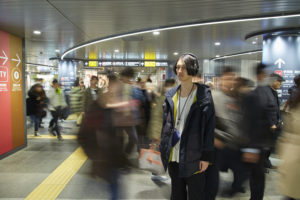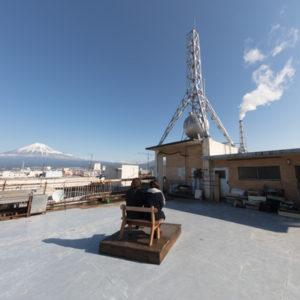私たちは人生の時間の3分の1を、働くことに費やしている。働くということは、人生にとってとても意義深い行為だが、毎日行っている当たり前のことすぎて、自分の働く意味について改めて考える機会はあまりない。転職や失業で新たな仕事を探す必要に迫られれば、職業について考える必要があるが、今度は仕事を探すことに必死になり、立ち止まってゆっくりと考える余裕がない。心の病であると診断されれば、医師やカウンセラーが必要なケアをしてくれるが、働く意味、生きる意味がわからないという病気はなく、頼れる人は限られているものである。今回の作品ではそうした現代人の、心の問題としては重要だがあまりケアされていない「働く意味」について振り返る、もう1つの職業紹介所をオープンする。
《本郷職業紹介所》の来所者は、アーティストが収集した働く意味についてのインタビュー映像を鑑賞したあと、職員と「面談」を行い自らの働く意味を語る。その内容はインタビュー映像として記録され、本人が望めば映像の一部として会場で上映され、他の鑑賞者に共有される。他者の話を聴き、自らも語り記録されるという行為を通じて、働く意味を振り返る。それは昭和初期に職業紹介所として建設された TOKAS 本郷の建物を舞台に現代社会に提示される「職業紹介所」のもう1つの在り方であり、会場における約1ヶ月半の活動自体が作品となる。
Humans spend one third of their lifetime working. Labor is a type of activity that is immensely meaningful for us humans, but it has become such a self-evident part of daily life that we rarely face situations that inspire us to think about its meaning. When we do, they mostly come as situations in which we are forced to look for (new) employment, and even though this means that we need to think about our job, we are so busy finding one that we have little time to sit back and reflect on its meaning. To those who are diagnosed with a mental disorder, doctors and therapists provide the necessary care, but there exists no such illness as “not understanding the meaning of working and of living,” so there are few people that we can rely on for these kinds of things. Set up at this exhibition is a different kind of employment agency that focuses on “the meaning of labor,” a matter that isn’t being cared for properly even though it is an important mental problem for the contemporary human.
Those who visit the Hongo Employment Agency first watch footage of interviews on the meaning of labor, compiled by the artist, before sharing their own ideas on this matter in “job interviews” with “employees” of the agency. Those interviews are filmed as well, and if desired, included in the visual projections at the exhibition venue, to inspire others to reflect on the meaning of their own labor as they listen and speak in front of a camera. The TOKAS Hongo building, established in the early Showa period as an employment agency, turns into a stage for a different kind of “employment agency” for the modern society. The setup of that agency, along with its “operation” for a month and a half, together make up the work that is presented here.
Organiser: Tokyo Arts and Space (as part of the exhibition TOKAS ACT Vol.4) / Coordinator: Junko Ono and Mariko Tsuji / Director: Daisuke Nakazawa (architecting stories) / Performer (as interviewer and staff of the employee agency): Tsutomu Ohashi, Rumi Takata, Haruka Toyoshima, Chieri Miura, Momoko Yajima and Yukiko Watanabe / Researcher: Takeshi Okahashi / Set design and construction: HIGURE 17-15 cas / Online Experience: Takaaki Sukegawa (Penne) / Filming and lighting support: Ryo Mikami / Special Thanks: Sotaro Ota, Hiroko Haji, Teruyuki Kuchu, Eriko Kuchu, Yusuke Satomi, Mashu Ohashi and Yukie Nagasawa / Photo: Ken Kato (photo courtesy of Tokyo Arts and Space)
